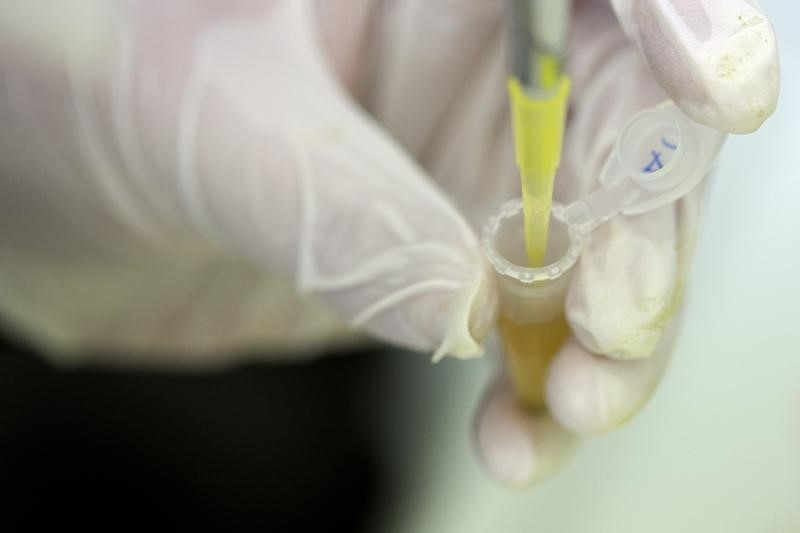TOKYO/MELBOURNE, Feb 1 (Reuters) - Researchers in Japan and Australia have developed a blood test that detects the toxic protein amyloid beta which has been linked to Alzheimer's brain disease.
The joint study published in the scientific journal Nature on Wednesday said the test was more than 90 percent accurate.
The study was based on 252 Australian and 121 Japanese patients aged 60 to 90 years of age, some classed as cognitively normal, others with mild cognitive impairment and some with Alzheimer's.
The blood test opens the way for possibly far cheaper and less invasive tests for amyloid beta, which builds up in the brain as Alzheimer's develops, said the researchers.
Currently brain scans or invasive cerebrospinal fluid testing, also known as a spinal tap, are used to ascertain the deposition in the brain of an abnormal protein, called amyloid beta. Some brain imaging tests can cost more than 150,000 yen ($915).
A simple, low-cost blood tests could also make it easier for pharmaceutical companies to secure enough people at risk of Alzheimer's to test new drugs to fight the disease, said researchers.
"Our blood test may ... have a transformative potential to facilitate the development of effective drugs for Alzheimer's disease," Katsuhiko Yanagisawa, director-general of the Japanese National Center for Geriatrics and Gerontology's research institute, said in a statement.
University of Melbourne Professor Colin Masters, a member of the Australian team of researchers, said the blood test was a step towards a potential cure for the disease.
"You have got to walk before you run. You have to learn to diagnose the disease directly before you can hope to see the effect of therapeutic intervention. And that's where the real value in this test will come," Masters said.
Alzheimer's disease starts years before patients have any symptoms of memory loss, so the key to treatment is in early detection.
Alzheimer's disease is the most common form of dementia, affecting up to 70 percent of all people with dementia, with three in 10 people over 85 having dementia, according to the Australian government's Dementia Australia organisation.
The disease was first recorded in 1907 by Dr Alois Alzheimer. ($1 = 109.3400 yen)
